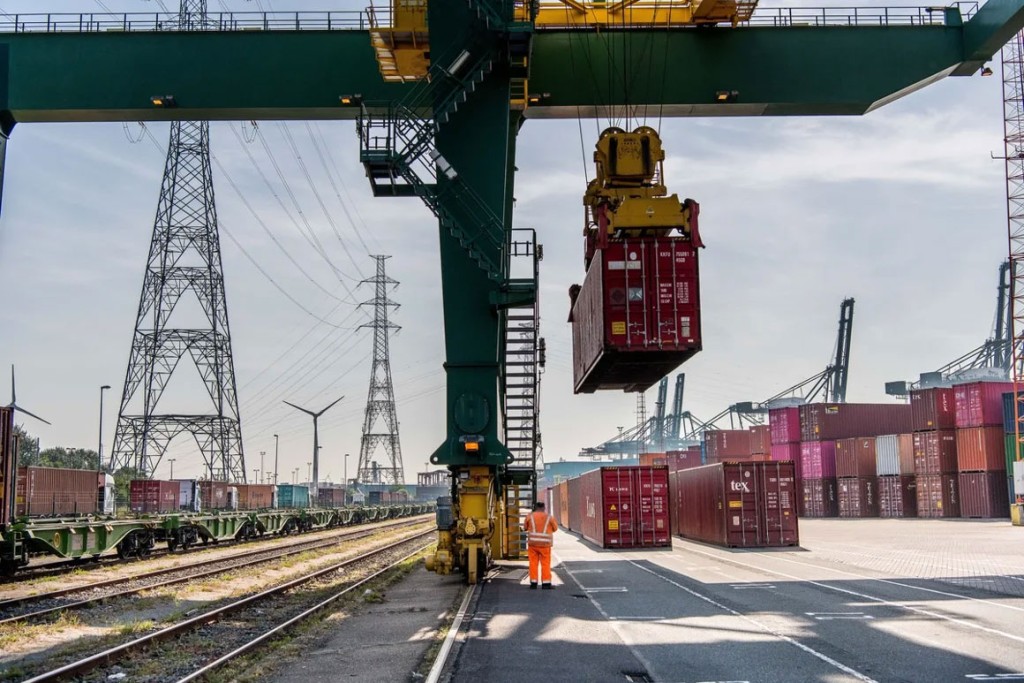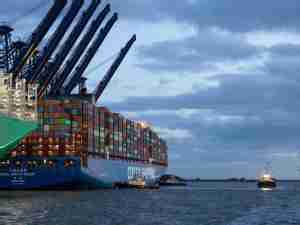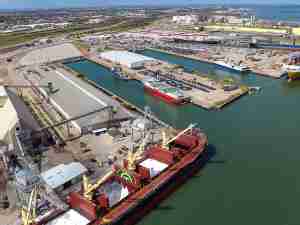
The total cargo throughput of Port of Antwerp-Bruges amounted to 70.4 million tonnes in the first quarter of this year, a rise of 2.4% compared to the same period last year. In an ongoing complex geopolitical and macroeconomic context, this performance, driven by a return to growth in container throughput, underscores the port's resilience.
After economic uncertainty and inflation led to a global slowdown in demand for container shipping in 2023, container throughput picked up again from February, with March even witnessing the best monthly throughput since March 2021. This resulted in a rise in total container throughput of 8.6% in tonnes and 6% in TEUs (3,287,000 TEUs), compared to the first quarter of 2023. Port of Antwerp-Bruges' market share in container handling in the Hamburg - Le Havre Range grew by 0.3 percentage points in 2023, to 29.9%.
Throughput volumes of conventional general cargo also showed an upward trend again. Although throughput decreased by 7.8% compared to the same period last year, it grew by 6.9% compared to the last quarter of 2023. Throughput of iron and steel remained unchanged, with incoming flows growing (+1.4%) and outgoing flows falling (-3.8%). Most other goods recorded a decline compared to the first quarter of 2023.
Roll-on/roll-off traffic decreased by 6.9% in the first quarter of 2024. The ongoing congestion at RoRo terminals resulted in a decrease in throughput of all transport equipment (-9%). This is mainly due to lower throughput of used cars (-52.5%), as well as high & heavy (-25%), trucks (-23.9%) and new cars (-5.5%). Throughput of unaccompanied cargo (excluding containers) carried on RoRo vessels grew by 1.7%. The decline in throughput to and from the United Kingdom (-4.4%) was offset by an increase in throughput to and from Spain and Portugal (+31.5%), Ireland (+6.4%) and Scandinavia (+13.5%).
While outgoing flows of dry bulk rose by 9. 7%, incoming flows fell by 24.4%, resulting in a fall of 12.1% in the dry bulk segment. Now that the energy crisis has abated somewhat, demand for coal has fallen sharply (-68.6%). Throughput of fertilizers, the largest product category within dry bulk, has recovered since the last quarter of 2023 (+33.9%), especially in imports. Throughput of non-ferrous ores (+47.3%), and scrap metal (+5.7%) also grew. Lower demand from the construction sector affected throughput of sand and gravel (-12.5%) and cereals are increasingly being transported in containers rather than in bulk (-43.7%).
Throughput of liquid bulk held up relatively well, recording a slight decline of 0.9%, with outgoing flows increasing by 4.2% but incoming flows falling by 4.1%. There was growth in the throughput of fuel oil (+25.2%), gasoline (+12.1%) and LNG (+10%). Despite the competitive pressure on the European chemical industry due to the high cost of energy, raw materials and labour, throughput of chemicals and naphtha rose by 5.2% and 12% respectively, thanks to a recovery in demand. Throughput of diesel recorded a drop (-40%), as did throughput of LPG (-11.5%) and liquid fuels in total (-11.4%).
In the first quarter of 2024, 4,855 sea-going vessels called at the port, a decrease by 1.8%. The gross tonnage of these vessels fell by 2.4%.
In the first three months of 2024, Zeebrugge welcomed 99,211 cruise passengers on 19 cruise ships, 10.7% fewer than in the record first quarter of 2023.

_-_28de80_-_939128c573a41e7660e286f3686f2a6e25686350_yes.jpg)








